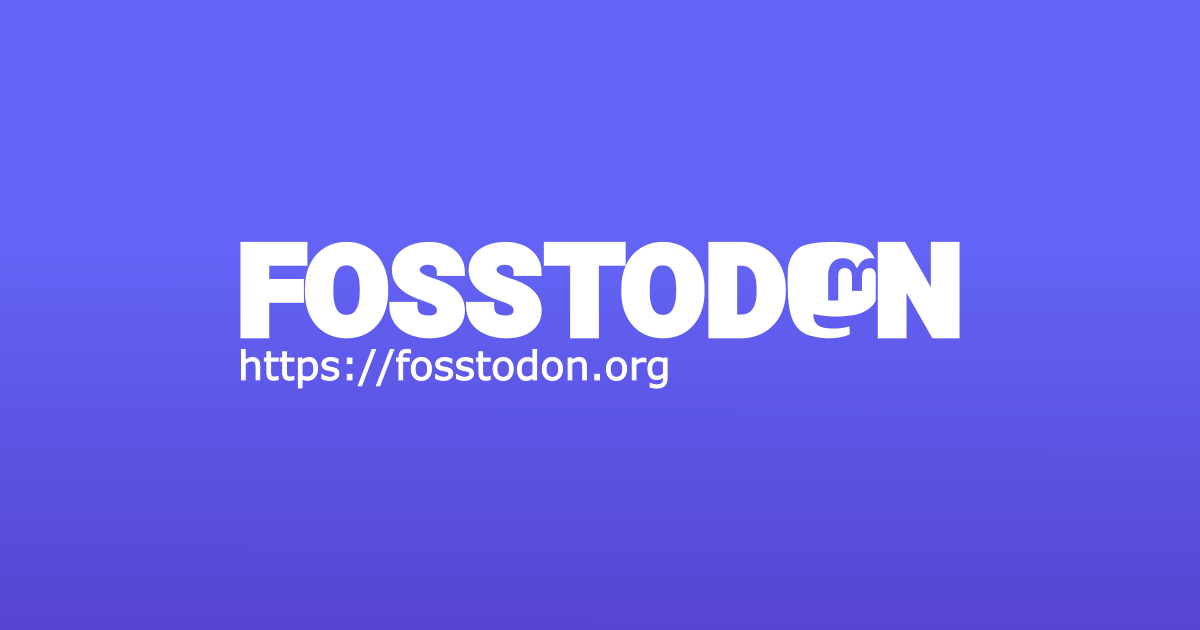Supposed you were to build a public-interest-oriented company - e.g. a CSM (Community supported music coop) working in an analogous manner to a CSA but co-producing concerts instead of cabbage - from scratch and wanted to document the building process so that 1. many people wanted to chime in along the way & get involved and 2. many people could easily copy it later or somewhere else - how would you tackle this documentation?
#publicinterest
The Signals Network joined 100+ other academics, organizations, and public figures in calling for OpenAI to offer the world greater transparency concerning its upcoming restructuring.
Read more here: https://www.openai-transparency.org/
Dharmasthala Case: Dharmasthala case.. 15 years of records disappeared!
https://vaartha.com/dharmasthala-case-15-years-of-records-disappeared/breaking-news/525372/
#Dharmasthala #DharmasthalaCase #SITInvestigation #MassBurial #KarnatakaNews #MissingRecords #MissingCase #Whistleblower #Justice #TempleControversy #Truth #BreakingNews #Karnataka #HumanRights #TrueCrime #News #Investigation #CrimeCase #HeadlineNews #UnsolvedMystery #PublicInterest #CaseUpdate #ViralNews #RecordsMissing #Judiciary #Accountability #Transparency #IndianNews #India

BBC: Some Gaza and Ukraine posts blocked under new age checks. “The new legislation, which came into effect last Friday, imposes fines on social media companies and other websites which fail to protect under-18s from pornography, posts promoting self-harm, and other harmful content. In serious cases, services could be blocked in the UK. But BBC Verify found a range of public interest content, […]
https://rbfirehose.com/2025/08/02/bbc-some-gaza-and-ukraine-posts-blocked-under-new-age-checks/

Search Engine Journal: Google Trends API (Alpha) Launching: Breaking News. “Google has just unveiled an alpha version of its Trends API at Google Search Central Live, Deep Dive APAC 2025. This new offering brings explore-page data directly into applications. The API will provide consistently scaled search interest figures. These figures align more predictably than the current website […]

Calishat: Analyze Overlapping Public Interest Via Wikipedia With Attention Junction. “Attention Junction, what’s your function? To analyze the views of two Wikipedia pages, identify spans of public interest, find overlaps, and turn them into Google / Google News searches. All while being free to use and free of ads.”

On Monday, a federal #court ruled — in a case brought by #PublicInterest groups — that the #Trump admin had illegally disabled the website.
While the #GAO is a #legislative agency, its leader is appointed by the president based on a set of recommendations from #Congress, then confirmed by the #Senate. It is a unique structure, which #Paoletta described in 2024 as “clearly unconstitutional,” arguing that it limits whom the president may choose.
Its creation was spurred along by the declaration of Newton N. Minow, chairman of the #FCC during the Kennedy admin, that the competition for ratings & ad dollars had turned TV into a “vast wasteland” of “game shows, formula comedies about totally unbelievable families, blood & thunder.” He beseeched broadcasters to “make a conscientious, good-faith effort to serve the #PublicInterest” with higher-quality fare.
"galling is #government's refusal to use PaoTang app, dev'ed by #Krungthai Bk under prev admin of Prayut. Te app is a proven platform tt has handled numerous govt schemes, incl'g te "We #TravelTogether" campaign.. Tis backward, #partisan decision-making is both #wasteful & #counterproductive. Why shld #taxpayers foot te bill to build new #ineffective apps? #Thailand #Travel Co-pay #fiasco .. reflects a broader #dysfunction tt places #politicalimage above #publicinterest"
https://www.bangkokpost.com/opinion/opinion/3064278/travel-scheme-farce
Digital Sovereignty in Practice: Web Browsers as a Reality Check
Reading in Servo’s latest weekly report that it’s now passing 1.7 million Web Platform Subtests, I started wondering: How much investment would it build it into a competitive, independent browser, in the context of all this talk on digital sovereignty?
Servo is an experimental web browser engine written in Rust, originally developed by Mozilla Research as a memory-safe, parallel alternative to traditional browser engines like Gecko and WebKit. After Mozilla laid off the entire Servo team in 2020, the project was transferred to Linux Foundation Europe, where it continues to be developed with minimal funding from individual donors and Igalia, a team of just five engineers. Servo’s progress demonstrates what’s possible with intentional investment in independent browser projects.
As initiatives like EuroStack propose €300 billion investments in digital infrastructure and researchers proposing comprehensive roadmaps for “reclaiming digital sovereignty” through democratic, public-led digital stacks, browsers are an ideal test case to ground these ambitious visions in reality.
The current browser landscape reveals how concentrated digital control has become. Roughly 75% of global web traffic flows through browsers based on Google’s Chromium engine; not just Chrome, but Microsoft Edge, Samsung, and dozens of others. Apple’s Safari dominates iOS but remains locked to their ecosystem. Firefox, once a genuine alternative, has declined to under 5% market share globally. This means American companies control how billions of users worldwide access the web. Every search, transaction, and digital service flows through infrastructure ultimately controlled by Silicon Valley. For societies valuing their independence and sovereignty, this represents a fundamental vulnerability that recent geopolitical events have made impossible to ignore.
Digital infrastructure is as important as energy or transportation networks. Unlike physical infrastructure, however, digital systems can be controlled remotely, updated unilaterally, and modified to serve the interests of their controllers rather than their users. Browsers exemplify this challenge because they’re both critical and seemingly replaceable. In theory, anyone can build a browser. The web standards are open, and rendering engines like Servo prove it’s technically feasible.
In practice, building browsers requires sustained investment, institutional coordination, and overcoming network effects that entrench existing players. If democratic societies can successfully coordinate to build and maintain competitive browser alternatives, it demonstrates their capacity for more complex digital sovereignty goals. If they cannot, it reveals the institutional gaps that need addressing.
Firefox offers important lessons about the challenges facing independent browsers. Mozilla has indeed faced difficulties: declining market share, organizational challenges, and ongoing technical issues. The organization has also alienated its most dedicated supporters by pivoting toward advertising, AI initiatives and cutting their impactful public advocacy programs.
However, Firefox remains the only major browser engine not controlled by Apple or Google, serving hundreds of millions of users worldwide. Its struggles reflect structural challenges that any alternative browser would face: the enormous engineering effort required to maintain web compatibility, the network effects favouring dominant platforms, and the difficulty of sustaining long-term technical projects through diverse funding sources.
Servo’s recent progress illustrates both the potential and the resource constraints of independent browser development. Since 2023, Igalia’s team of just five engineers has increased Servo’s Web Platform Test pass rate from 40.8% to 62.0%, added Android support, and made the engine embeddable in other applications, even demonstrating better performance than Chromium on Raspberry Pi. This progress on a shoestring budget shows what focused investment could achieve, while also highlighting how resource-constrained independent browser development remains.
Yet, building a competitive alternative browser infrastructure would require substantial but manageable investment. Here is a ballpark estimation I made based on existing browsers: Annual operating costs would include:
- Engineering Team of ±50 developers, designers, managers etc.: €15 million.
- Quality Assurance and Testing Infrastructure: €10 million
- Security Auditing and Vulnerability Management: €10 million
- Standards and Specification Development: €5 million.
At this point I would just round up to around 50-70 million annually, which I’m sure would comfortably cover everything I missed. The proposed EuroStack initiative already envisions €300 billion over multiple years. Browsers represent a tiny fraction of what democratic societies already spend on strategic infrastructure. This calculation proves that the cost isn’t the primary barrier: the European Space Agency for example has had a budget of €7.8 billion in 2024. Europe can afford to build a browser.
It would probably take around 3-4 years to fully build an alternative browser from scratch, less so if it’s a fork of one of the existing ones. Forking Chromium/Gecko or building upon Servo’s foundation could reduce this timeline to 18-24 months for basic functionality, though achieving full web compatibility and market readiness would still require several additional years of refinement. The initial development sprint needs to be followed by a sustained engineering effort needed afterward, for maintaining compatibility with evolving web standards, fixing security vulnerabilities, and keeping pace with performance improvements.
The core challenge isn’t technical; it’s institutional. How do you sustain long-term technical projects through democratic processes that span multiple countries with different priorities, resources, and political systems? Successful models exist. The European Space Agency coordinates complex multi-national technical projects. CERN manages cutting-edge research infrastructure across dozens of countries. The Internet Engineering Task Force maintains critical internet standards through voluntary coordination among global stakeholders. The “Reclaiming Digital Sovereignity” proposal specifically addresses this challenge by advocating for “new public institutions with state and civil society representation” to govern universal digital platforms, alongside “multilateral agreements on principles and rules for the internet” as safeguards for autonomous, democratically governed solutions.
Browser development could follow similar patterns: international frameworks that respect national sovereignty while enabling coordinated action, governance structures that balance technical expertise with democratic accountability, and funding mechanisms that provide stability across political cycles. The Reclaiming Digital Sovereignity’s report’s emphasis on “democratic international consortia” and “public knowledge networks led by a new public international research agency” provides concrete institutional models that could be adapted for browser development. Germany’s Sovereign Tech Agency represents another model for public investment in digital infrastructure for the public interest.
With all that being said, browsers represent one of the more achievable digital sovereignty goals. They’re built on open standards, rely heavily on open source components, and face fewer network effects than platform-based services. Other areas of the technology stack would be far more challenging, and far less open.
Success here would demonstrate that democratic societies can coordinate effectively on complex technical infrastructure and pass the first hurdle. Failure would reveal institutional gaps that need addressing before attempting more ambitious digital sovereignty goals. Democratic digital sovereignty is challenging but feasible, if societies are willing to think institutionally, invest sustainably, and build incrementally rather than trying to recreate Silicon Valley with different ownership structures.
Ultimately, the real question isn’t whether democratic societies can build alternative technologies, but whether they can build the democratic institutions necessary to govern them effectively across the complex realities of international coordination, competing priorities, and long-term sustainability. I believe browsers offer an ideal place to start testing these institutional innovations. The technical challenges are surmountable. The institutional ones remain to be proven.
Views expressed are personal and do not represent any organization.
"The wave of #violence against #journalists on the streets of #LosAngeles this weekend is unacceptable. These protests are a matter of huge #PublicInterest and the public has a right to know exactly what’s going on. The only way that can happen is if journalists are allowed to do their jobs freely."
https://rsf.org/en/usa-rsf-condemns-wave-violence-against-journalists-covering-los-angeles-protests
.
@RightToKnow Do we have here another example of AI hallucinations or was the creation of false legal references an intention to deceive? Needs investigation.
Drone Footage Drama: Public Demand Ignored?! You Won't Believe This! Uncover the drone footage debate! We address public concerns over CPRA requests, shedding light on transparency and accountability. Explore the complexities of drone footage release and its impact on privacy and public interest. Join our discussion! #DroneFootage #CPRA #Transparency #Accountability #PublicInterest #PrivacyConcerns #GovernmentOversight #OpenData #CivilRights #Surveillancehttps://https://ift.tt/lBjOUmy
the #FCC required Verizon to end its diversity, equity, and inclusion (DEI) policies as a condition for approving its $20 billion merger with Frontier. The FCC explicitly cited #Verizon’s commitment to terminate DEI-related practices as part of its rationale for granting approval. Verizon agreed to remove DEI references from #training, #public materials, hiring, #management compensation, and #supplier diversity, and to dismantle its internal DEI team.
https://www.fierce-network.com/broadband/verizon-ditches-dei-get-its-frontier-deal-quickly-approved
Sophie Zhang shares a key takeaway: Know yourself, know what you're willing to risk, and use that as your starting principle. She also offers essential tips for whistleblowers on protecting themselves and making informed decisions before going public. @szhang_ds
#Whistleblower #BigTech #SXSW2025 #AI #tech #accountability #PublicInterest #techaccountability #techwhistleblower
"The problem is that governments and businesses serve vastly different purposes. If public policymakers start mimicking business founders, they will undermine their own ability to address complex societal challenges.
For startups, the highest priority is rapid iteration, technology-driven disruption, and financial returns for investors. Their success often hinges on solving a narrowly defined problem with a single product, or within a single organization. Governments, by contrast, must tackle complex, interconnected issues like poverty, public health, and national security. Each challenge calls for collaboration across multiple sectors, and careful long-term planning. The idea of securing short-term gains in any of these areas doesn’t even make sense.
Unlike startups, governments are supposed to uphold legal mandates, ensure the provision of essential services, and enforce equal treatment under the law – more important today than ever. Metrics like market share are irrelevant, because the government has no competitors. Rather than trying to “win,” it should focus on expanding opportunities and promoting the diffusion of best practices. It must be long-term minded, while achieving nimble and flexible structures that can adapt."
"The first step may be to finally recognize that “running government like a business” has always been a red herring. The government is not a business — it is the thing that makes business possible. Unregulated markets frequently fail to produce good businesses so long as we define “good” as beneficial to their customers. And unregulated businesses, as we’ve recently been forced to witness, are even worse at producing good government. As the economist Mariana Mazzucato has long argued, the libertarian CEO types now running Washington are willfully ignorant of just how dependent their industries are on the backbone of public services like roads, telecoms, courts and publicly-funded research — services they have enjoyed largely for free since financial liberalization and business tax cuts have allowed them to shelter the vast majority of their profits.
Step two is much harder: articulating some positive idea of an activist government in the marketplace. For Doctorow, as for many others, this begins with “a very aggressive antitrust agenda” aimed at breaking up the monopolies that have become powerful enough to capture — and try to replace — the federal government under Trump. “You cannot have a referee who is weaker than the players on the field,” he told me.
“Anti-government nihilism cannot be countered without a defense of the government’s role in daily life.”
But there are other, more constructive roles the government could play. Doctorow suggested a federal jobs guarantee that would put a meaningful floor on the value of labor. Or a database of publicly funded, patent-free research, which would compel corporations to support interoperability — what Mazzucato has called, in the context of AI, a “decentralized innovation ecosystem that serves the public good.”"
Whistleblowers exposing unethical actions in unregulated areas, like AI, face unique challenges. Unlike those revealing illegal activities, these whistleblowers could lack legal protection, making their role even more critical in bringing attention to potential harm.
It’s essential that we support these whistleblowers to ensure accountability and ethics in growing industries.
Most whistleblowers remain anonymous, with only a few choosing to step into the public eye. In 2024, TSN supported 40 whistleblowers across 10 countries, but only three chose to reveal their identities.
#Whistleblowers #BigTech #SXSW2025 #AI #tech #Accountability #PublicInterest #techaccountability #techwhistleblower
Prince Harry’s immigration records ‘heavily redacted’ in court filings despite public interest claims. Here’s why…. https://www.inbella.com/976799/prince-harrys-immigration-records-heavily-redacted-in-court-filings-despite-public-interest-claims-heres-why/ #Court #CourtFilings #DepartmentOfHomelandSecurity #HeritageFoundation #immigration #ImmigrationStatus #Legal #News #PrinceHarry #PrinceHarryImmigration #PrinceHarryUSImmigration #privacy #PublicInterest #Royal #RoyalFamilies #RoyalFamily #RoyalGossip #Royals #RoyalsGossip #safety #security #USImmigration #USNews #World

